Edie Melson's Blog, page 54
April 23, 2024
10 Ways to Know You Have Too Many Characters in Your Manuscript

by DiAnn Mills @DiAnnMills
Writers enjoy creating a cast of characters. The process of developing distinct story players with unusual physical, mental, emotional, and spiritual traits fills us with satisfaction. But how do we know when we have too many?
The dilemma of too many characters often occurs on the first page when more than two story players struggle for the point of view. We want the reader to identify with one character and establish a sympathetic bond. The writer invites the reader to invest hours and energy to walk the same journey as a story player. Using more than two characters in the beginning often confuses the reader, and confusion leads to putting the story aside.
Over the more than two decades of writing fiction, I’ve formulated guidelines to keep story players to a minimum. If the character has a name, then that signals their role is essential to the story.
These are my guidelines for not only the POV character(s) but also for all the story players.Who is the protagonist(s)? This means two highly crafted characters who will add value to the story by adding their POV. This is often used in romance and sub-romance genres. However, it can be a part of any genre. One of the two protagonists will usually have a few more POV scenes than the other.Who is the antagonist? Not every antagonist is a person. If your story requires a person, he/she must be thoroughly crafted. The antagonist must be a complicated character, sometimes more so than the protagonist.Guidelines for the POV character(s) within your story:Who has the most to lose?What has the most to gain?Who will be present at the climax?Those who satisfy the above criteria are the POV characters in your story. A character can show who they are by their actions, behavior, and words and not be a POV character. This is one of the reasons writers are encouraged to show and not tell their stories.Guidelines for finding the right POV character in each scene:Who has the most to lose?What has the most to gain?Who will be present at the climax? *In some stories, this character might be missing at the climax: death, imprisonment, illness, etc.Guidelines for establishing the remaining cast of characters:Whenever possible give a character more than one role. This reduces the cast and adds more conflict and intricacy to the plot.Subplots work when the resolution of the subplot can only occur when the story plot is resolved.Additional characters must play a role in moving the story forward and/or deepening characterization.The following list of characters and the roles they play are an example of a tightly crafted story.
Joel Point of view characterSmall town sheriffInvestigating a series of three murders of local ranchersMarried to RachelFather to Samuel, who is a sickly childSon-in-law to Amos who pays for Samuel’s medical expensesRachel Married to JoelMother to SamuelDaughter of a widowed wealthy rancher, Amos, who built her and Matthew’s home and pays for Samuel’s medical expensesMatt Deputy to JoelBrother to JoelHelping to investigate a series of murders on local ranchesEngaged to Elizabeth, Rachel’s sisterFuture father-in-law, Amos, is building him and Elizabeth a home to begin married lifeSamuel Son of Joel and RachelVery ill and cannot live without costly medicineGrandson of Amos who pays for medicine Elizabeth Engaged to MattSister to RachelFuture sister-in-law to JoelAunt to SamuelDaughter of AmosLooking forward to marrying Matt and a new home that father, Amos, is building. Amos Point of view characterFather-in-law to JoelFather to Rachel and ElizabethGrandfather to SamuelWillingly pays Samuel’s medical expenses.A thief and the murderer of three local ranchers.
The above example could have several characters, but by limiting the story players to five and placing them in different roles, the plot is filled with conflict, emotion, and unpredictable plot points.
Do you have a method to shorten your cast of characters?
TWEETABLE10 Ways to Know You Have Too Many Characters in Your Manuscript from @DiAnnMills on @EdieMelson (Click to Tweet)
 DiAnn Mills is a bestselling author who believes her readers should expect an adventure. She creates action-packed, suspense-filled novels to thrill readers. Her titles have appeared on the CBA and ECPA bestseller lists; won two Christy Awards; and been finalists for the RITA, Daphne Du Maurier, Inspirational Readers’ Choice, and Carol award contests.
DiAnn Mills is a bestselling author who believes her readers should expect an adventure. She creates action-packed, suspense-filled novels to thrill readers. Her titles have appeared on the CBA and ECPA bestseller lists; won two Christy Awards; and been finalists for the RITA, Daphne Du Maurier, Inspirational Readers’ Choice, and Carol award contests. She is the former director of the Blue Ridge Mountain Christian Writers Conference, Mountainside Marketing Retreat, and Mountainside Novelist Retreat with social media specialist Edie Melson. Connect here: DiAnnMills.com
Published on April 23, 2024 22:00
April 22, 2024
Tips for Writers to Keep Your Online Presence Safe and Accurate
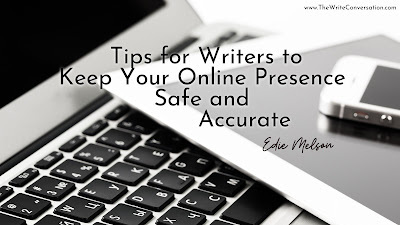
by Edie Melson @EdieMelson
I’ve been in the writing industry for a while (about a quarter century *gulp*). And two small habit I developed early on have been absolutely invaluable to my career. These two things have kept me from missing opportunities, provided valuable contacts, and enabled me to head off some cloning and hacking situations.
What are they?
First, I check my email spam folder every single day and second, at least once a month, I search for spam accounts that have cloned me on social media.
You should make these habits part of your regular routine and here’s why:
Online Checks Writers Should Do Regularly
First, Check Your Spam Folder(s) Daily
1. Publishing opportunities Hide There. Early on in my writing career I sent a proposal for my first novel to a publisher that requested it. Four weeks, six weeks and then eight weeks passed with no answer. I happened to see that editor at a writing conference and introduced myself to her and told her I was sorry my book didn’t make the cut. She looked at me surprised, “But it did. We’re just waiting for you to sign the contract.”
Yep, you guessed it. The reply—with the attached contract—was hidden in my spam folder.
2. Warnings come from there. One day I was deleting email in my spam folder and came across an odd email. It was referencing something on social media that appeared to be from me. I dug deeper and discovered I’d been tagged in some shady social media posts. By paying attention, I was able to head off potential issues.
3. Important emails can end up there. I’ve already shared about a publishing opportunity I almost missed, but other important emails can get shunted to spam. Years ago, when I was just getting The Write Conversation established with regular contributors, an email showed up in my spam folder. The sender claimed to be writing on behalf of the Warren Adler, one of our great American Novelists. I almost deleted it, because after all, why would Warren Adler want his assistant to contact me? But the email didn’t read like your usual spam email. The grammar and syntax were excellent and the email address matched the person who’d written the email.
I moved the email into my inbox and answered. Turns out it WAS from Warren Adler’s assistant and he (Warren Adler) was looking for places to share information with writers and had chosen The Write Conversation. I was beyond shocked and humbled!!!! That great man wrote regularly for The Write Conversation for several years before his death.
4. Notifications you need hide there. We just finished up the Blue Ridge Mountains Christian Writers Conference and one of the services we provide to attendees is the opportunity to purchase the recordings of the classes and keynotes (and no, we are unable to sell those to anyone who isn’t present at the event). The one thing we emphasize strongly to each purchaser is the need to check their spam folder. The notification that the recordings are ready for download will come through email. And we really have no control over whether or not it ends up in someone’s spam folder. You’d be amazed at what important notifications can be found there.
Second, Why to Search for Yourself on Social Media Regularly
Before I give you my reasons, I want to make sure we’re on the same page with terminology. Today I want to share two irritating things that can happen online: Hacking and Cloning. They are NOT the same thing.
Hacking: If you’ve been hacked, someone has stolen access to one of your accounts and is using that account to share posts and/or email. This can be a huge headache and will require you to contact the account provider to unravel the mess and either return access of that account to you or get it closed down.
Cloning: If you’ve been cloned, someone has stolen your public information and used it to open a new account pretending to be you. They have not stolen your password or taken anything private. While it is irritating, this is much more common and much easier to clean up—IF you discover it in a timely manner.
Tips & Reasons for Doing a Social Media Search for Yourself
First, before this even becomes an issue, I strongly urge you to put into place a two-step verification for every single social media network you’re part of. Yes, it makes it harder to log in on different devices, but that momentary inconvenience is NOTHING compared to being hacked.
1. I search for myself at least every two weeks on every social media network. But a monthly search is adequate for most people. And yes, I have a calendar reminder to search for social media accounts—it's THAT important. Here’s what I do:I go to each social media network where I have an account and I type my name into the search. I don’t just look at the thumbnails that appear, I go ahead and click to do a deeper search. I’m looking for odd spellings of my name (sometimes with added characters or numbers). I’m also looking for pictures of myself—especially profile pictures that are current or have been used in the past. I set aside an hour for this and I go through each social media account separately.
2. I don’t give hacked or cloned accounts to develop a footprint. The reason I check for these accounts so often is because if I don’t, then the impersonators have a chance to gain a following and look legitimate. This makes it harder to prove that I was the one who owned the account first. I’ve seen quite a few people who let too much time go by and lost the right to their own name on different networks. Be proactive NOW and avoid heart ache later!
3. If I find a cloned account, I immediately report that account. Facebook, Twitter, Instagram, and all the others have a place where you can report an account. I do NOT block these cloned accounts because I want to be able to check and make sure they’re closed down.
4. I notify my followers after I’ve reported the account. Once I’ve reported the account, I put up a post on that social media network letting my friends and followers know there’s an impersonator out there. I also ask them to go to that account and report it. This helps legitimize my claim to the social media network’s powers-that-be.
Final Note: Before the possibility of hacking or cloning even becomes an issue, I strongly urge you to put into place a two-step verification for every single social media network you’re part of. Yes, it makes it harder to log in on different devices, but that momentary inconvenience is NOTHING compared to being hacked.
Things to IGNORE!Yep, there are now some notifications you need to delete and ignore. The biggest one LOOKS like it comes from Facebook.
1. Instant Messenger on Facebook is a minefield of spam notifications. The biggest one going around right now is a warning that LOOKS like it was from Facebook and it warns that you are in violation and your Facebook account is about to be shut down if you don't click the link and fix it.
DO NOT CLICK THAT LINK!!!!
This is a lie. If you are in violation, you'll get a notification through Meta Business.
2. Instant Messenger on Facebook is a minefield of phishing links. I make it a practice to NEVER click any link from a Facebook Messenger message. If I think the message is legit, I contact that person another way—OFF Facebook—to verify.
3. A lot of the other Messages you receive through a social media app are also dangerous. I never click on any of them without verifying another way.
Bottom LineWe live in a time where it’s important for writers to be active online. But with this comes the responsibility to govern those accounts and watch for people who will misuse them. Ignorance is not an excuse. These two habits aren’t difficult. And by adding them to your regular routine, you will save yourself hours of headaches & heartaches later.
Now it’s your turn, what have you discovered by checking your spam folder and social media regularly? And if you don’t have these two habits in place, why not? Share your thoughts in the comments section below.
Don’t forget to join the conversation!Blessings,Edie
TWEETABLEImportant Tips for Writers to Keep Your Online Presence Safe & Accurate from @EdieMelson (Click to Tweet)
 Edie Melson is a woman of faith with ink-stained fingers observing life through the lens of her camera. No matter whether she’s talking to writers, entrepreneurs, or readers, her first advice is always “Find your voice, live your story.” As an author, blogger, and speaker she’s encouraged and challenged audiences across the country and around the world. Her numerous books reflect her passion to help others develop the strength of their God-given gifts and apply them to their lives. Connect with her on her website, through Facebook, Twitterand Instagram.
Edie Melson is a woman of faith with ink-stained fingers observing life through the lens of her camera. No matter whether she’s talking to writers, entrepreneurs, or readers, her first advice is always “Find your voice, live your story.” As an author, blogger, and speaker she’s encouraged and challenged audiences across the country and around the world. Her numerous books reflect her passion to help others develop the strength of their God-given gifts and apply them to their lives. Connect with her on her website, through Facebook, Twitterand Instagram.
Published on April 22, 2024 22:00
April 21, 2024
The Characters We Write Must Have Traits, Habits, and Flaws

by Ane Mulligan @AneMulligan
I'm a people watcher. I'm sure most of you who are writers do the same. I pick up numerous character traits that way. I even read a cartoon the other day containing a terrific character trait, and I knew it would be perfect for one of my characters in my WIP.
I keep a list of those I like—both good, bad, funny, and unusual traits. I've gathered these from people I know, things I've seen people do when I'm out and about. I've listed some but I have compiled an exhaustive list for me to choose my characters' traits. Here are a few of those.
Traits/habits
AbsentmindedBites fingernailsBold/blunt in speechCollects things, always has a pocketful of rocks, paper clips, etcCounts thingsCracks knucklesFickleFlirtGullibleHard of hearingHumsJiggles foot or legLicks lipsMakes lists constantlyNervousPicks at nail polishPolishes flatwarePurses lips and taps with index finger while thinkingSnaps fingersSpeaks loudlySqueamishStuttersTaps footTwirls hairTwitchy (can be a habit or physical problem)Have you ever known anyone who can't pass a mirror without checking their hair, lipstick, or whatever?
Minor Character Flaws:AimlessApologizes constantlyClumsy GluttonGossipLazy and unwilling to do thingsNaiveNoseyPerpetually latePoor decision-making skillsPoor hygienePreoccupation with one's physical featuresSpoiledSpacey
Major/fatal Character FlawsAbusiveAddicted (can be drugs, gambling, smoking, sex, serial killer)Always finding fault in othersBlames everyone but themselfCruelDeceptiveGreedyInconsiderateLiarNarcissisticPossessiveRecklessRevengefulShort-temperedWeak-willed
Don't forget phobias. Those can be really good to add to a character, especially for an antagonist. Why not have a serial killer who has arachnophobia or claustrophobia? You can find exhaustive lists online.
What's your favorite trait from a book you're written or read? Join the conversation!
TWEETABLEThe Characters We Write Must Have Traits, Habits, and Flaws from @AneMulligan on @EdieMelson (Click to Tweet)
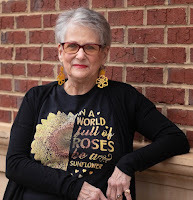 Ane Mulligan lives life from a director’s chair, both in theatre and at her desk, creating novels. Entranced with story by age three, at five, she saw PETER PAN onstage and was struck with a fever from which she never recovered—stage fever. One day, her passions collided, and an award-winning, bestselling novelist immerged. She believes chocolate and coffee are two of the four major food groups and lives in Sugar Hill, GA, with her artist husband and a rascally Rottweiler. Find Ane on her website, Amazon Author page, Facebook, Instagram,Pinterest, The Write Conversation, and Blue Ridge Conference Blog.
Ane Mulligan lives life from a director’s chair, both in theatre and at her desk, creating novels. Entranced with story by age three, at five, she saw PETER PAN onstage and was struck with a fever from which she never recovered—stage fever. One day, her passions collided, and an award-winning, bestselling novelist immerged. She believes chocolate and coffee are two of the four major food groups and lives in Sugar Hill, GA, with her artist husband and a rascally Rottweiler. Find Ane on her website, Amazon Author page, Facebook, Instagram,Pinterest, The Write Conversation, and Blue Ridge Conference Blog.
Published on April 21, 2024 22:00
April 20, 2024
Struggles of a Writer
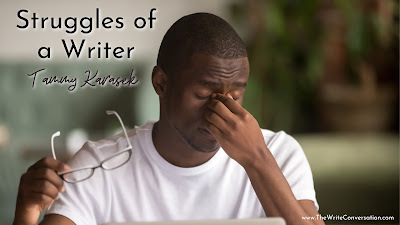
by Tammy Karasek @TickledPinkTam
I’m not sure where your mind is in regard to your writing at this point in the year, but I know many writers around me are struggling with the good enoughs. I know, that’s not a real word—but it sure is a real issue. I’ve heard too many times lately—I’m not good enough, I don’t know if I should be writing or who do I think I am calling myself a writer? I’m not excluding myself from this problem, either. Those words have flashed through my mind on occasion.
Writer friends, that’s exactly where the enemy would have us, too. Self-doubt. It must be one of his favorite darts to throw at writers.
When this happens, and it will, we need to remember that God was the one who called us to write. He knew our capabilities and chose us to be His personal scribes. On our own, we aren’t good enough. But He didn’t throw us into writing and expect us to do it alone. He’s there walking beside us. Or for some of us—pulling us forward. Where we’re weak, he’ll bring help to us. We have writing friends, writing groups, craft books and conferences to take our weaknesses and make them our strengths. Accept the help. Don’t flounder hidden at home.
If you’re a writer further along in the writing process, reach back and help someone behind you. At some point in your writing journey, there was someone or several who reached back to you.
If this is you at the present time, first reach out to the One who gifted you with this talent and called you to this endeavor. Let him know your struggles and allow Him to direct you to your next step. Be receptive to the assistance and guidance He sends your way. He has confidence in you—you were chosen for this task of sharing His gospel through your stories. Therefore have confidence in yourself as well.
“And whatever you do, in word or deed, do everything in the name of the Lord Jesus, giving thanks to God the Father through him.” Colossians 3:17 ESV
TWEETABLEStruggles of a Writer from @TickledPinkTam on @EdieMelson (Click to Tweet)
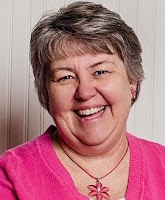 Tammy Karasek uses humor and wit to bring joy and hope to every aspect in life. Her past, filled with bullying and criticism from family, drives her passion to encourage and inspire others and give them The Reason to smile. She’s gone from down and defeated to living a “Tickled Pink” life as she believes there’s always a giggle wanting to come out! A writer of Romance—with a splash of sass. She’s also The Launch Team Geek helping authors launch their books and also a Virtual Assistant for several best-selling authors. Don't miss her recent book, LAUNCH THAT BOOK, just released in November.
Tammy Karasek uses humor and wit to bring joy and hope to every aspect in life. Her past, filled with bullying and criticism from family, drives her passion to encourage and inspire others and give them The Reason to smile. She’s gone from down and defeated to living a “Tickled Pink” life as she believes there’s always a giggle wanting to come out! A writer of Romance—with a splash of sass. She’s also The Launch Team Geek helping authors launch their books and also a Virtual Assistant for several best-selling authors. Don't miss her recent book, LAUNCH THAT BOOK, just released in November. Her work was also published in a Divine Moments Compilation Book—Cool-inary Moments. She’s also the Social Media Manager for the Blue Ridge Mountains Christian Writers Conference, Founding President and current Vice-President of ACFW Upstate SC, and Founding President of Word Weavers Upstate SC. She’s a writing team member for The Write Conversation Blog, Novel Academy, MBT Monday Devotions, The Write Editing and more. Connect with Tammy at HTTPS://WWW.TAMMYKARASEK.COM.
Published on April 20, 2024 22:00
April 19, 2024
Tips to Help a Writer Refill & Refresh Your Creative Spirit

by Edie Melson @EdieMelson
We all have times when life spirals out of control. Maybe it’s too many writing deadlines, a family crisis or holiday madness. Whatever it is, it can drain us dry. I’ve learned that these dry times come when I don’t the luxury of taking a couple of weeks off to rest and recover. I’ve had to figure out how to keep going and recover while I'm doing it.
How to Feed A Writer's Creative Spirit
1. I take a spiritual inventory. I make sure my time with God hasn't slipped in priority. Even if it hasn't, I look for more time to spend with Him. He is the source of all my creativity. Without Him FIRST, everything else I do will be in vain.
2. I evaluate what’s on my schedule. I take a look at what I have to do no matter what, and at the things I just feel like I should do. There’s a difference, trust me. Now’s the time to let go of everything that isn’t absolutely necessary.
3. I acknowledge that I’m dealing with mental fatigue. My mind is like a muscle that’s been overworked. It needs time to recuperate. To give it the time it needs, I watch the clock while I’m working and taking frequent breaks during the day. I’ll use those breaks to wander around the yard with my camera, take lunch with a friend, or just sit and enjoy a TV show.
4. I take a look at my disrupted routine. Many of you know I keep a pretty regular schedule. I have to, I’m too easily distracted as it is. A schedule helps me focus and stay productive. But when life spirals out of control, my schedule can degenerate into doing nothing more than sitting in front of the computer for twelve to fourteen hours a day, seven days a week. No one can sustain that kind of workload for any length of time.
When that happens, I become very rigid with my schedule (including the break times). This helps me stay on track, even as I give myself time to recuperate. My writing time is be shorter and my breaks a little longer.
5. I feed my creative spirit. I must rekindle that creativity that’s burned so low in my soul. Here are some specifics on things I do:I spend more time reading—for pleasure. I may try a new author, or revisit an old favorite. I go where my whims lead me. NOTHING from my to-do reading list allowed!I do some things that spark my creativity, like jewelry making or knitting. Something fun, but not something I do for money. Just opportunities that encourage my imagination to soar.I go to the movies. This gives me the opportunity to immerse myself in worlds that other creative geniuses have imagined and most important, much-needed time with my husband and with friends.Finally, I find a time for a short vacation. It may only be a one-day trip into the mountains or a local park, but my husband and I need the unplugged time with just each other as our focus.
Now I’d love to hear from you. How do you refill and refresh your creative spirit? Share your suggestions in the comments section so we can all learn from each other.
TWEETABLETips to Help a Writer Refill & Refresh Your Creative Spirit from @EdieMelson (Click to Tweet)
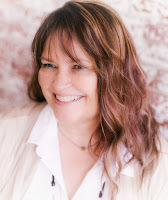 Edie Melson is a woman of faith with ink-stained fingers observing life through the lens of her camera. No matter whether she’s talking to writers, entrepreneurs, or readers, her first advice is always “Find your voice, live your story.” As an author, blogger, and speaker she’s encouraged and challenged audiences across the country and around the world. Her numerous books reflect her passion to help others develop the strength of their God-given gifts and apply them to their lives. Connect with her on her website, through Facebook, Twitterand Instagram.
Edie Melson is a woman of faith with ink-stained fingers observing life through the lens of her camera. No matter whether she’s talking to writers, entrepreneurs, or readers, her first advice is always “Find your voice, live your story.” As an author, blogger, and speaker she’s encouraged and challenged audiences across the country and around the world. Her numerous books reflect her passion to help others develop the strength of their God-given gifts and apply them to their lives. Connect with her on her website, through Facebook, Twitterand Instagram.
Published on April 19, 2024 22:00
April 18, 2024
The Benefits of Working with a Writing Coach

by Crystal Bowman
Back in the day—like thirty years ago—I met with a children’s editor who was interested in my idea for a beginning reader series. He liked the first two stories I had submitted and said they had potential. Then he passed me off to his assistant who worked with me for several months to make the stories worthy of bringing to the publishing board. My rewritten stories finally went before the “powers that be” who liked them enough to offer a contract for a four-book series. The books were published years later, and another four-book contract followed.
Sounds wonderful, right? Well, friends, I am sorry to say those days are gone. The editors at publishing houses are no longer looking for manuscripts that have potential. They want to see professionally written, polished stories that are almost ready to go to the printers. That doesn’t mean an accepted manuscript won’t go through rounds and rounds of revisions. It means that writers need to do everything they can to submit the best possible manuscript if they have dreams of being published. And most writers need help with that.
What is a writing coach?
If you belong to a critique group—that’s great! I know many writers who receive valuable feedback from their peers. But I have also seen manuscripts from writers who tell me, “My critique group says this is ready to go,” and it’s not.
A writing coach is someone who has been successful in the publishing industry with many years of experience. They are able to walk beside you in your publishing journey to help with editorial assessment, developmental editing, character development, and story building. Many writing coaches are certified, but years of experience is equally important—and be sure to hire someone who coaches the genre you are writing. Since I am a children’s author, I only coach writers who write children’s books for kids ages 0-10.
It’s a learning process.
A while back, a writer contacted me and asked for help with her picture book series. She spoke words that are music to my ears: “I don’t know what I don’t know.” With her open mind and willingness to learn I knew she would be a dream to work with. After reviewing some of her ideas, I told her that a picture book series would not do justice to what she wanted to write, and it would be difficult to market the books. I suggested she write a book of short devotions instead. Her brain flipped like a light switch and the flood gates opened. In a short time, she sent me dozens of devotions based on the topics she wanted to address. After working with her and guiding her through revisions, she had a full proposal with sample devotions ready to send to a publisher.
It will build confidence.
Many writers who plan on attending a writers’ conference are nervous that their manuscripts are not good enough. Writers should bring their best material to a conference since it may be their one chance to have an editor or agent review their work. Working with a writing coach prior to a conference can not only improve a manuscript, but also help the writer feel more confident when meeting with a professional.
It may open doors.
One of the writers I coached had a brilliant idea for a Bible storybook. She was an excellent writer, but a few of the stories needed some revisions. After improving her stories, she submitted her work to an acquisitions editor and received a contract that grew into a series.
Bottom line
Whether you seek traditional publishing or choose an independent publishing route, the goal is to submit the best version of your manuscript. As writers, we must strive for excellence and learn everything we can before sharing our words with the world. And—remember these wise words from a fellow writer who sought out a writing coach: I don’t know what I don’t know.
Join the conversation: How have you benefited from hiring a writing coach?
TWEETABLEThe Benefits of Working with a Writing Coach from author Crystal Bowman on @EdieMelson (Click to Tweet)
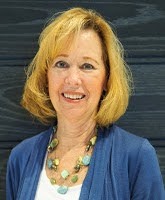 Crystal Bowman is an award-winning, bestselling author of more than 100 books for children and families. She also writes lyrics for children’s piano music and is a monthly contributor to Clubhouse Jr. Magazine, Arise Daily, and Christian Children's Authors. She enjoys coaching children's writers as well as teaching at writers conferences. When she is not writing or speaking, she likes going for walks and spending time with her huggable grandkids. She and her husband live in Michigan and Florida and try to avoid snowstorms.
Crystal Bowman is an award-winning, bestselling author of more than 100 books for children and families. She also writes lyrics for children’s piano music and is a monthly contributor to Clubhouse Jr. Magazine, Arise Daily, and Christian Children's Authors. She enjoys coaching children's writers as well as teaching at writers conferences. When she is not writing or speaking, she likes going for walks and spending time with her huggable grandkids. She and her husband live in Michigan and Florida and try to avoid snowstorms.WWW.CRYSTALBOWMAN.COMWWW.FACEBOOK.COM/CRYSTAL.BOWMANWWW.FACEBOOK.COM/CRYSTALJBOWMANWWW.INSTAGRAM.COM/CRYSTALBOWMANAUTHOR
Published on April 18, 2024 22:00
April 17, 2024
10 Steps to Building Your Author Platform for Greater Impact

by Susan U. Neal RN, MBA, MHS @SusanNealYoga
In today's world, brimming with people seeking hope and direction, your words hold immense power. They can comfort, inspire, and transform lives. But even the most heartfelt and divinely inspired messages require a platform to effectively reach those who need to hear it.
First, don’t get overwhelmed. You can’t complete all these tasks at once. It takes time. Writing is a journey. So create a marketing plan and plot what you plan to accomplish.
These 10 steps to build an author platform will help extend your reach.1. Eye-Catching Web Presence: Your website, which serves a your online home, should be easily found by your audience. Has your website been optimized it for Google and does it include all the necessary sections? Can your readers easily find your social media icons on your website? Is your website ranking for keywords on Google?2. Inspiring Lead Magnets: Have you created a compelling offer that encourages viewers to subscribe? If not, brainstorm and create a handout. A time-delayed pop-up should entice your viewer to snag your gift. Share your lead magnet when writing guest blogs to gain more subscribers. 3. Email Journeys of Faith: Develop a powerful email sequence that engages and inspires your subscribers. First, create a welcome sequence along with your gift. Tell your story to your reader. Share your experience so they know who you are and how you can help them. It’s like sitting down and connecting with a friend. This builds a relationship with your subscriber, so they trust you.4. Social Media as a Ministry: Master two key platforms to spread your words like seeds of faith. Where do your readers hang out? I can find my readers, 40–70-year-old women, on Facebook rather than Instagram. Engage with your audience when they comment on your post. Ask them a question and keep the conversation going. When you do, the platform shows your post to more of your friends. 5. Blogging with Purpose: Share your insights and testimonies to magnify your message. Regularly posting new content improves your website’s search engine ranking over time. Add Pinterest pins to each blog to drive more traffic to your website. Pinterest is more than a social media site; it is a search engine. It brings more traffic to my website than all my other social media combined.6. Shine on Amazon Author Central: Enhance your visibility where readers and seekers converge. Complete your profile. Add your new book to your account. Check your book sales rank.7. Expanding Horizons: Establish your author presence on Goodreads and BookBub to further connect with readers. Claim your author profile, add your social media, and join relevant groups. Giveaways provide the unique advantage.8. Marketing through Service: Write guest blogs and magazine articles to serve others while spreading your message. Using other established websites gets your work seen by more readers, but writing for websites that have a low search engine presence does not. Learn how to tell the difference.9. Broadcast Your Voice: Learn the techniques for finding and pitching to podcasts and radio shows. Find a curated list of shows (CIPA.Podia.com has List of 100 Radio & Podcast Media by genre). Listen to the podcast and pitch an idea that the show hasn’t discussed in the past year. 10. Speaking: Research conferences, events, and churches for speaking opportunities. There are many great venues to share your message through speaking engagements once you do the research.
With these practical steps, you will not only grow your followers, but also deepen your impact in their lives. Your marketing isn't just about building a platform; it's about constructing a digital pulpit. The world needs your voice now more than ever.
Extend your reach by working on one item on this list at a time. You’ve probably got many of these pieces in place. Which ones will you embark on next? Set up a plan to project your ministry’s message of faith, hope, and love.
If you need further instruction, take the Course: 10 Steps to Building Your Author Platform at https://cipa.podia.com/. This intensive goes beyond the basics of platform building. With the practical steps provided, you won't just grow your audience; you'll deepen your impact in their lives!
TWEETABLE10 Steps to Building Your Author Platform for Greater Impact @SusanNealYoga on @EdieMelson (Click to Tweet)
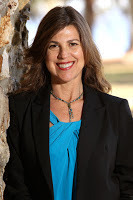 Susan U. Neal, RN, MBA, MHS: Susan’s mission is to improve the health of the body of Christ. She has her RN and MBA degrees, as well as a master’s in health science. She is a CERTIFIED HEALTH AND WELLNESS COACHwith the American Association of Christian Counselors. She published five books, the Selah award winner 7 STEPS TO GET OFF SUGAR AND CARBOHYDRATES, CHRISTIAN STUDY GUIDE FOR 7 STEPS TO GET OFF SUGAR AND CARBOHYDRATES, HEALTHY LIVING JOURNAL, SCRIPTURE YOGAa #1 Amazon best-selling yoga book, and YOGA FOR BEGINNERSwhich ranked #3. She published two sets of Christian Yoga Card Decks and two Christian Yoga DVDs that are available at CHRISTINAYOGA.COM. Her digital product HOW TO PREVENT, IMPROVE, AND REVERSE ALZHEIMER’S AND DEMENTIA is a great resource. To learn more about Susan visit her website SUSANUNEAL.COM You can also connect with Susan on FACEBOOK, TWITTER, and INSTAGRAM.
Susan U. Neal, RN, MBA, MHS: Susan’s mission is to improve the health of the body of Christ. She has her RN and MBA degrees, as well as a master’s in health science. She is a CERTIFIED HEALTH AND WELLNESS COACHwith the American Association of Christian Counselors. She published five books, the Selah award winner 7 STEPS TO GET OFF SUGAR AND CARBOHYDRATES, CHRISTIAN STUDY GUIDE FOR 7 STEPS TO GET OFF SUGAR AND CARBOHYDRATES, HEALTHY LIVING JOURNAL, SCRIPTURE YOGAa #1 Amazon best-selling yoga book, and YOGA FOR BEGINNERSwhich ranked #3. She published two sets of Christian Yoga Card Decks and two Christian Yoga DVDs that are available at CHRISTINAYOGA.COM. Her digital product HOW TO PREVENT, IMPROVE, AND REVERSE ALZHEIMER’S AND DEMENTIA is a great resource. To learn more about Susan visit her website SUSANUNEAL.COM You can also connect with Susan on FACEBOOK, TWITTER, and INSTAGRAM.
Published on April 17, 2024 22:00
April 16, 2024
Lessons Learned after 15 Years of Blogging

by Edie Melson @EdieMelson
Can you believe it? Writer's Digest Magazine just announced their 26th Annual 101 Best Websites for Writers List. Thanks to all of you, we made the list again! The Write Conversation has been on the list since 2017. I'm humbled and excited by the inclusion.
It's hard to believe this blog began just over 15 years ago.
There have been some detours and dips in the road, but it's been an amazing journey and I can't wait to see what the next 15 years bring! To celebrate, I thought I'd share a little of what I've learned.
11 Lessons Learned on the Blogging Road
1. Blogging isn’t about what I have to say, it’s about what my readers want to hear. The difference is subtle, but the focus is ALWAYS on our readers, not us.2. Blogging is a marathon, not a sprint. We need to have realistic expectations, not wild delusions of instant visibility. 3. There’s more to blogging than just writing. We must know how to craft a compelling title, format for reading on a screen, learn about keywords and even the basics of SEO. There’s an entire skill-set that must be learned to be a successful blogger.4. Blogging has value. Sometimes I’ve written a post and wonder what was the point. The numbers were low and so were the comments. Inevitably that was the post someone mentioned when they shared how God used this site to impact them. 5. Blogging is work. In essence starting a blog is like opening a business. We may be passionate about it, but to make it successful we have to be willing to work and put in the necessary hours.6. Running a blog is about building a community. For a blog to have an impact, it must have readers—returning readers. That means building a community of people who gather together regularly. 7. Blogging requires a commitment to excellence. We must be willing to take the time to make certain what we present reaches a certain standard. That means editing, taking time choose images that make sense, and following a process.8. Blogging is about interacting. We must always be mindful of those who comment on our blogs. If they took the time to write a comment, we can at least enter the conversation.9. An unfocused blog is an unread blog. No matter how compelling the content of a site, if it can’t be found through a search engine, it won’t be read. Sticking to a single category allows search engines the opportunity to become familiar with our content and move it up in the search ranking.10. Change is inevitable. The world around us changes, our circumstances change, even our focus changes. My blog is much different today than it was when I started—and so is my vision of what I want it to be. A successful blogger is one that is willing to embrace.11. Blogging is a chance to make a difference. At no other time in history have writers had the opportunity to impact the world for good without the barrier of physical location or distribution. We are called for such a time as this and we must be willing to step up and let God use us to make that difference.
These are things I've learned over the years. I'd love to know what you'd add to the list. Be sure to leave your thoughts in the comments section below!
Don't forget to join the conversation!Blessings,Edie
TWEETABLELessons Learned after 15 Years of Blogging from @EdieMelson (Click to Tweet)
 Edie Melson is a woman of faith with ink-stained fingers observing life through the lens of her camera. No matter whether she’s talking to writers, entrepreneurs, or readers, her first advice is always “Find your voice, live your story.” As an author, blogger, and speaker she’s encouraged and challenged audiences across the country and around the world. Her numerous books reflect her passion to help others develop the strength of their God-given gifts and apply them to their lives. Connect with her on her website, through Facebook, Twitter and Instagram.
Edie Melson is a woman of faith with ink-stained fingers observing life through the lens of her camera. No matter whether she’s talking to writers, entrepreneurs, or readers, her first advice is always “Find your voice, live your story.” As an author, blogger, and speaker she’s encouraged and challenged audiences across the country and around the world. Her numerous books reflect her passion to help others develop the strength of their God-given gifts and apply them to their lives. Connect with her on her website, through Facebook, Twitter and Instagram.
Published on April 16, 2024 22:00
April 15, 2024
Three Great Reasons Writers Should Attend Conferences

by Dr. Katherine Hutchinson-Hayes @KHutch0767
My first writer’s conference was the Blue Ridge Mountains Christian Writers Conference. This experience was life-changing for me. I didn’t know anyone there and had little knowledge about the publishing industry. I attended the conference feeling a mix of excitement and fear but eager to learn. I was even more excited, scared, and anxious to learn when I left. Even now, after several years of working as a professional editor, book coach, podcaster, freelancer, and published author, I still experience the same emotions I felt at that first conference. However, these emotions drive me to keep developing my faith and skills as a writer.
While there are numerous benefits to attending writing conferences, here are my top three:
1. IDENTIFY LATEST TRENDS
In Christian writing, staying current with the latest trends, emerging genres, and changing reader preferences is essential. Writing conferences offer a unique opportunity to access valuable industry information, network with professionals, and learn from experts.
Attending conferences can help you stay informed about what’s selling and what’s not, which can prepare you for the type of work that is in demand. By staying up-to-date with the latest trends and literary techniques, you can set yourself apart from other writers and ensure your work is relevant and engaging.
2. RECHARGE
Writing can be challenging and isolating, but conferences offer a chance to connect with like-minded individuals and build relationships. Often, Christian conferences have a spiritual aspect, including corporate worship, biblical teaching, and motivational talks, which can help you stay motivated and inspired in your craft.
Attending workshops, seminars, and panel discussions can help Christian writers improve their skills, learn new techniques, and stay updated with the latest tools and technologies. Networking with other writers, agents, and publishers can also help you exchange ideas, share best practices, and learn from your colleagues' experiences. This can help you improve your skills, expand your knowledge, and build relationships that benefit your writing career.
3. NETWORK
Attending writing conferences can be an incredibly valuable experience for writers. They provide a platform for learning and growth through workshops, panels, and presentations and offer a unique opportunity for writers to connect with others in the field. At these conferences, you can engage with other writers, editors, and publishers, make important connections, and build relationships that can be beneficial throughout your writing career. By establishing a strong community of fellow writers, you can gain support, feedback, and a sense of belonging, which can be crucial to success as a writer. So, if you want to take your writing to the next level, attending a writing conference is worth considering.
BOTTOM LINE
Attending writer’s conferences can significantly benefit your writing career. These conferences offer a unique opportunity to network with industry professionals, meet other writers, and stay informed about the latest trends and techniques in the writing world. Not only can you learn from keynote speakers and participate in workshops, but you can also gain valuable feedback from editors, agents, and publishers.
However, the cost of attending a writer’s conference can be a barrier for some writers. Fortunately, many conferences offer scholarships or financial assistance to help cover the cost. It's important to research these options and apply early to increase your chances of receiving support.
In addition to networking and educational opportunities, attending a conference can be a tax-deductible investment in your career. You can deduct expenses such as registration fees, travel, and lodging, making attending a conference more accessible and affordable.
Attending conferences can help you gain the knowledge and connections needed to succeed in your writing career. Don't let financial barriers hold you back from this valuable experience. Look into scholarships and financial assistance and remember, attending a conference––is a worthwhile investment in your future.
TWEETABLEThree Great Reasons Writers Should Attend Conferences from @KHutch0767 on @EdieMelson (Click to Tweet)
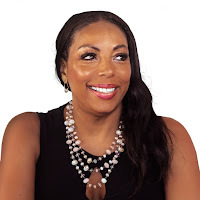 Dr. Katherine Hutchinson-Hayes is a review board member and contributor to Inkspirations (an online magazine for Christian writers), and her writing has been published in Guideposts. Her work in art/writing is distinguished by awards, including the New York Mayor’s Contribution to the Arts, Outstanding Resident Artist of Arizona, and the Foundations Awards at the Blue Ridge Mountains Christian Writer’s Conference (2016, 2019, 2021). She is a member of Word Weavers International and serves as an online chapter president and mentor. She belongs to FWA (Florida Writers Association), ACFW (American Christian Fiction Writers), CWoC (Crime Writers of Color),
Dr. Katherine Hutchinson-Hayes is a review board member and contributor to Inkspirations (an online magazine for Christian writers), and her writing has been published in Guideposts. Her work in art/writing is distinguished by awards, including the New York Mayor’s Contribution to the Arts, Outstanding Resident Artist of Arizona, and the Foundations Awards at the Blue Ridge Mountains Christian Writer’s Conference (2016, 2019, 2021). She is a member of Word Weavers International and serves as an online chapter president and mentor. She belongs to FWA (Florida Writers Association), ACFW (American Christian Fiction Writers), CWoC (Crime Writers of Color),AWSA (Advanced Writers and Speakers Association), and AASA (American Association of School Administrators). She serves on the nonprofit organization Submersion 14 board and the 540 Writer’s Community board and is an art instructor for the nonprofit organization Light for the Future. Katherine hosts the podcast Murder, Mystery & Mayhem Laced with Morality. She has authored a Christian Bible study for women and is currently working on the sequel to her first general market thriller novel. Her thriller A Fifth of the Story will debut in February 2024 through Endgame Press.
Katherine flourishes in developmental editing and coaching writers. She has a twenty-year career in education, leadership, and journalism. Katherine freelances as an educational consultant for charter schools, home school programs, and churches. In this role, she has written and edited curriculum, led program development, and helped manage growth facilitating and public relations.
She also works as an editor and book coach through her consulting business. Katherine provides skill, accountability, and professionalism so clients can begin, develop, and finish their writing projects for publication.
Published on April 15, 2024 22:00
April 14, 2024
Ideas to Help Authors Spend Book Marketing Dollars Wisely

by Karen Whiting @KarenHWhiting
It's a myth that authors all make lots of money and yet PR people and others who offer to help with ask for hundreds and even thousands of dollars against the little per book made.
Let's consider ways to save on money, swap services for money, sell articles to cover expenses, free promotion to do, and how to spend money wisely.
Start localContact or visit local media stations and newspapers for interviews. opportunities. Volunteer for telethons so they want to help you.Get to know store owners who might carry your book.Check local banks or other place where you do business to see if they'll give you a display or opportunity to sell your books.Check with church friends who travel frequently. Share your ministry vision and ask if they will use mileage or hotel points to help you attend a conference.Write for your church bulletin and other needed content in trade for funding you to attend a conference.Speak at your church or other local outlets to build your resume and jumpstart sales. Put our postcards the audience can send friends to promote the book to enlist then audience to become influencers.After an interview or talk, ask for a reference and a referral.
Engage in the Power of Other AuthorsFollow authors in your genre. See where they have media interviews and listen up. Then create a pitch based on similar topics with unique slants or what you wish they had talked on more. Look up the host and pitch, or if they are a supporter of your book, ask for an email introduction to the host.Share posts of authors that will relate to your audience and add a few thoughts to the post.Consider doing a joint podcast of blog.Hold a zoom call to share promotional ideas.Give shout outs for friend's books.Swap off being the book launch leader with another author who has a book release a month or two off from your own. Be sure you and the other person have a passion for one another's books and are enthusiastic to motivate followers.
ArticlesWrite articles that pay and some that don't a good promotion in the bio or even a free ad instead of paymentDiscover what magazines like your articles and pay fast to build up money to invest in promotion.
Social Media MotivatorsBuild your following (sometimes with a $1 ad a day for a few months).Share book snippets, engage with readers with questions and comments that can elicit responses.Use action steps in your posts and watch for which ones work best., Then create more of those types of posts.Use video in ads and posts. They garner more attention. With Canva you can create short videos with a simple group of photos and text. Or use vidyo.ai to extract short clips to post from longer videos you have.
Free marketingSocial posts and it's getting easier to do that with AI incorporated to software that helps you create posts. Whether Canva, adobe express, Picmonkey, or other, most have upped their game and help find the perfect photos and templates to use. Contacting media yourself with a great press release and pitch. Try a crowdfunding campaign if you can motivate followers that it will bless people who really need the book. It might be to cover the cost or enough copies for every mom in a shelter, for retailers at a trade show, or the moms coming to a luncheon. Be specific on what it will go towards and how much money is needed.
The Power of Referrals
Referrals mentioned above are important. It's a great way to harness the power of relationships and success.
If people liked your talk, get the referral to post on your website and social media. Ask for names and contact information of people they think might want you to come and speak or be a guest.Ask if they will email you and the hot or meeting planner to introduce you with a word of how much they benefited from you.Ask the host what they think people liked the most in your talk and create a short video sharing those same ideas.
Choosing where to spend bucksIt can be better to pay a coach who equips you to do things on your own instead of needing to pay again. See if there's a good marketing coach to hire (or trade for services you can provide).
Sometimes to get to the next step it's good to hire someone. That might mean hiring a PR person to get you on a few TV shows or radio to break in, and to have great links to show other media. Be specific on what you want and make a deal to get that.
Choose wisely. It's important to get a book release a good start. If someone who runs a launch team has a great track record it might be beneficial to hire the person. But, it might be better to ask readers and friends to create one-minute videos of how the book impacted them and post those everywhere.
List goals that could help sales and check out how to invest money to reach the goals. That's how to best decide where to spend marketing dollars.
TWEETABLEIdeas to Help Authors Spend Book Marketing Dollars Wisely from @KarenHWhiting on @edieMelson (Click to Tweet)
 Karen Whiting (WWW.KARENWHITING.COM) is an international speaker, former television host of Puppets on Parade, certified writing and marketing coach, and award-winning author of twenty-seven books for women, children, and families. Her newest book, The Gift of Bread: Recipes for the Heart and the Table reflects her passion for bread and growing up helping at her grandparent’s restaurant. Check out her newest book Growing a Mother’s Heart: Devotions of Faith, Hope, and Love from Mothers Past, Present, and Future. It's full of heartwarming and teary-eyed stories of moms.
Karen Whiting (WWW.KARENWHITING.COM) is an international speaker, former television host of Puppets on Parade, certified writing and marketing coach, and award-winning author of twenty-seven books for women, children, and families. Her newest book, The Gift of Bread: Recipes for the Heart and the Table reflects her passion for bread and growing up helping at her grandparent’s restaurant. Check out her newest book Growing a Mother’s Heart: Devotions of Faith, Hope, and Love from Mothers Past, Present, and Future. It's full of heartwarming and teary-eyed stories of moms.Karen has a heart to grow tomorrow’s wholesome families today. She has written more than eight hundred articles for more than sixty publications and loves to let creativity splash over the pages of what she writes. She writes for Crosswalk. Connect with Karen on Twitter @KarenHWhiting Pinterest KarenWhiting FB KarenHWhiting.
Published on April 14, 2024 22:00



